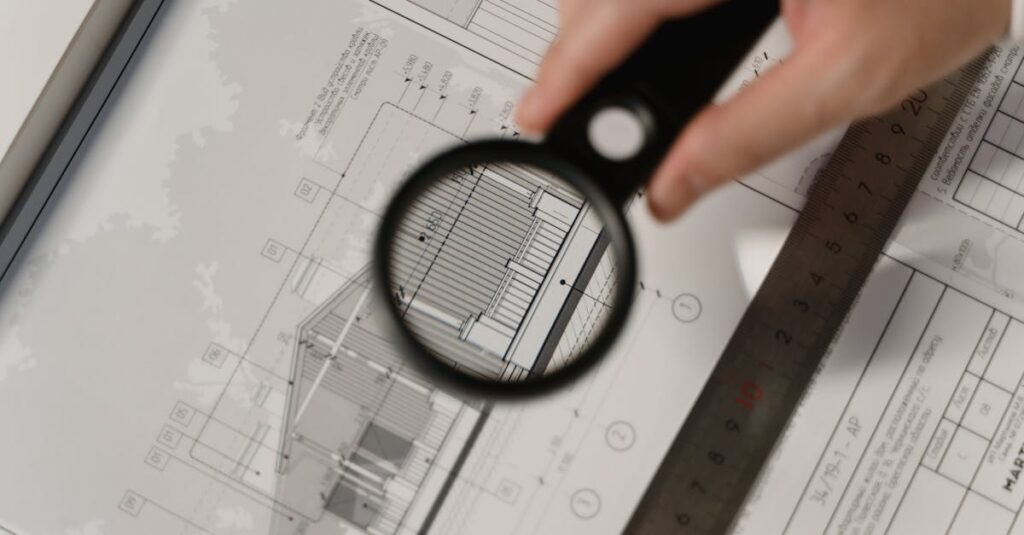As a seasoned technical writer, I’ve witnessed the incredible growth and evolution of this dynamic field. Technical writing offers diverse career opportunities that blend communication skills with technical expertise, making it an attractive choice for those who love explaining complex ideas in simple terms.
I’ll tell you straight up – the demand for skilled technical writers continues to surge across industries. From software companies and healthcare organizations to manufacturing firms and government agencies, businesses need professionals who can create clear documentation user guides and technical specifications. The rise of digital transformation has only amplified this need as companies seek writers who can effectively communicate technical information to various audiences.
Key Takeaways
- Technical writing combines communication skills with technical expertise, offering diverse career opportunities across industries like software, healthcare, and manufacturing.
- Key skills required include research proficiency, writing expertise, document design capabilities, project management, technical aptitude, and strong attention to detail.
- Career progression ranges from entry-level positions ($45,000-$65,000) to senior roles ($85,000-$150,000+), with specializations like API documentation, medical writing, and UX writing.
- Essential qualifications include a bachelor’s degree in English, Communications, or Technical Communication, along with professional certifications from organizations like STC, AMWA, or IEEE.
- The job outlook is promising with a projected 12% growth rate through 2030, particularly in software (15% growth) and healthcare (13% growth) sectors.
- Breaking into technical writing requires networking through professional organizations, building a diverse portfolio, and gaining experience through internships or entry-level positions.
Jobs in Technical Writing
Technical writing transforms complex information into clear user-focused documentation. It bridges the gap between technical experts and end-users through precise documentation of products, processes or services.
Key Skills Required for Technical Writers
- Research proficiency to gather accurate technical information from multiple sources including SMEs interviews databases research papers
- Writing expertise focusing on clarity conciseness correctness consistency
- Document design capabilities using tools like Adobe FrameMaker MadCap Flare Microsoft Word
- Project management skills to handle multiple documentation projects timelines stakeholder coordination
- Technical aptitude to understand complex concepts in technology science engineering
- Collaboration abilities to work with developers engineers designers subject matter experts
- Attention to detail for maintaining accuracy consistency across documentation
- Information architecture skills to organize content logically effectively
- API Documentation Writer creating guides reference materials for software interfaces
- Procedure Writer developing step-by-step instructions manuals SOPs
- Medical Writer producing clinical documents regulatory submissions healthcare materials
- User Experience Writer crafting interface text microcopy product documentation
- Knowledge Base Writer creating FAQs troubleshooting guides support documentation
- Policy Writer developing corporate government regulatory documentation
- Training Materials Developer producing learning modules instructional content workshops
- Hardware Documentation Specialist writing equipment manuals assembly instructions maintenance guides
| Technical Writing Role | Primary Focus | Key Deliverables |
|---|---|---|
| API Documentation | Software Interfaces | Reference Guides API Documentation Integration Tutorials |
| Medical Writing | Healthcare | Clinical Documents Regulatory Submissions Patient Materials |
| UX Writing | User Interface | Microcopy Product Guides User Documentation |
| Technical Training | Education | Training Modules Workshop Materials E-learning Content |
Career Paths in Technical Writing
Technical writing offers multiple career progression paths with increasing responsibilities and specialization opportunities. The field provides structured advancement from entry-level positions to senior roles with clear skill development milestones.
Entry-Level Technical Writing Positions
Entry-level technical writing positions focus on creating basic documentation under supervision. Common job titles include:
- Junior Technical Writer: Creates user guides and standard operating procedures
- Documentation Specialist: Maintains existing documentation and assists with updates
- Technical Content Writer: Develops product descriptions and basic technical articles
- Associate Technical Writer: Collaborates on documentation projects with senior writers
Starting salaries for entry-level positions range from $45,000 to $65,000 annually, depending on location and industry.
| Entry-Level Role | Average Salary | Primary Responsibilities |
|---|---|---|
| Junior Technical Writer | $45,000 | User guides, procedures |
| Documentation Specialist | $50,000 | Document maintenance |
| Technical Content Writer | $55,000 | Product descriptions |
| Associate Technical Writer | $65,000 | Team collaboration |
Senior Technical Writing Opportunities
Senior technical writing positions involve complex documentation projects and leadership responsibilities. Advanced roles include:
- Lead Technical Writer: Manages documentation teams and sets content strategy
- Technical Documentation Manager: Oversees department operations and budgets
- API Documentation Architect: Designs complex technical documentation systems
- Information Development Director: Develops enterprise-wide documentation standards
Senior-level positions command salaries ranging from $85,000 to $150,000+ annually.
| Senior Role | Average Salary | Key Requirements |
|---|---|---|
| Lead Technical Writer | $85,000 | 5+ years experience |
| Technical Documentation Manager | $110,000 | Team management |
| API Documentation Architect | $125,000 | Programming knowledge |
| Information Development Director | $150,000 | Strategic planning |
Industries That Hire Technical Writers
Technical writers find employment opportunities across diverse sectors where complex information requires clear documentation for various audiences. Here’s a detailed look at the primary industries seeking technical writing expertise.
Technology and Software Companies
The technology sector employs the largest number of technical writers to create documentation for software applications APIs databases cloud platforms. Tech companies like Google Microsoft Amazon employ technical writers to develop user guides release notes API documentation software specifications knowledge base articles. The average salary for technical writers in technology companies ranges from $75,000 to $120,000 annually.
| Tech Writing Role | Typical Deliverables | Salary Range |
|---|---|---|
| Software Documentation | User Guides, APIs | $75K-95K |
| Product Documentation | Release Notes, Specs | $85K-105K |
| Platform Documentation | Knowledge Base, Tutorials | $90K-120K |
Healthcare and Medical Fields
Healthcare organizations require technical writers to create medical documentation regulatory submissions clinical trial reports patient education materials. Medical device companies pharmaceutical firms research institutions hire technical writers to produce FDA documentation instruction manuals clinical protocols research papers. Medical technical writers earn between $70,000 to $110,000 annually.
| Healthcare Writing Type | Primary Focus | Salary Range |
|---|---|---|
| Medical Device | Equipment Manuals | $70K-90K |
| Clinical Documentation | Trial Reports | $80K-100K |
| Regulatory Writing | FDA Submissions | $90K-110K |
Manufacturing and Engineering
Manufacturing companies employ technical writers to document product specifications assembly instructions maintenance procedures safety protocols. Industries like aerospace automotive electronics manufacturing need technical writers to create equipment manuals engineering specifications quality control documentation maintenance guides. Technical writers in manufacturing earn $65,000 to $95,000 annually.
| Manufacturing Focus | Document Types | Salary Range |
|---|---|---|
| Product Engineering | Specifications | $65K-85K |
| Safety Documentation | Protocols | $70K-90K |
| Equipment Writing | Maintenance Guides | $75K-95K |
Technical Writing Education Requirements
Technical writing education combines formal academic training with practical skill development to prepare professionals for documentation roles. The field demands both theoretical knowledge and hands-on experience in creating technical content.
Degree Programs and Certifications
A bachelor’s degree in English, Communications, Journalism or Technical Communication provides the foundation for jobs in technical writing. Several professional certifications enhance career prospects:
- Society for Technical Communication (STC) Certified Professional Technical Communicator (CPTC)
- American Medical Writers Association (AMWA) Essential Skills Certificate
- IEEE Professional Technical Communication Certificate
- API Documentation Certification from tech companies like Google or Amazon
- XML Documentation Specialist Certification
- Information Mapping Certification
Building Your Portfolio
A technical writing portfolio showcases practical skills through diverse documentation samples:
- Software user guides with step-by-step instructions
- API documentation with code samples
- Process documentation for internal procedures
- Knowledge base articles on technical topics
- White papers on industry-specific subjects
- Release notes for software updates
- Technical specifications for products
- Training materials with multimedia elements
| Element | Purpose |
|---|---|
| Case studies | Demonstrates problem-solving abilities |
| Style guides | Shows consistency in documentation |
| Project samples | Illustrates range of writing capabilities |
| Before/after examples | Highlights improvement skills |
| Documentation tools | Proves technical proficiency |
Average Salary and Job Outlook
Technical writing salaries reflect experience levels, industry demands, and geographical locations, with compensation packages ranging from entry-level positions to senior roles.
Compensation by Experience Level
The salary structure for technical writers varies significantly based on experience and expertise:
| Experience Level | Average Annual Salary (USD) | Additional Benefits |
|---|---|---|
| Entry Level (0-2 years) | $45,000 – $65,000 | Health insurance, 401(k) |
| Mid-Level (3-5 years) | $65,000 – $85,000 | Stock options, flexible hours |
| Senior Level (6-10 years) | $85,000 – $120,000 | Remote work, leadership bonuses |
| Principal/Lead (10+ years) | $120,000 – $150,000+ | Profit sharing, extended PTO |
Key factors affecting compensation include:
- Location differentials (Silicon Valley commands 30-40% higher rates)
- Industry specialization (Healthcare technical writers earn 15% above average)
- Technical expertise (API documentation specialists earn 20% premium)
- Project complexity (Enterprise software documentation increases base pay by 25%)
Future Growth Projections
The technical writing field demonstrates strong growth potential through 2030:
| Metric | Projection |
|---|---|
| Job Growth Rate | 12% increase |
| New Positions | 5,500+ openings annually |
| Highest Growth Industries | Software (15%), Healthcare (13%), Manufacturing (10%) |
| Remote Opportunities | 45% of positions offer remote options |
- Digital transformation across industries
- Increased demand for API documentation
- Expansion of SaaS platforms
- Growth in artificial intelligence documentation
- Rising need for regulatory compliance documentation
Breaking Into Technical Writing
Technical writing careers offer multiple entry points for aspiring professionals. The journey begins with strategic networking coupled with hands-on experience opportunities.
Networking and Professional Organizations
Professional organizations connect aspiring technical writers with industry veterans through structured networking platforms. The Society for Technical Communication (STC) provides access to job boards local chapter meetings conferences webinars. Additional organizations include:
- Write the Docs: Hosts global conferences virtual meetups documentation-focused Slack channels
- IEEE Professional Communication Society: Offers technical writing certifications industry publications research resources
- Technical Writer HQ: Provides online courses mentorship programs career guidance tools
- Content Wrangler Community: Features industry news forums networking opportunities focused on content strategy
Building Experience Through Internships
Internships provide practical technical writing experience in real-world business environments. Companies offering technical writing internships include:
| Company Type | Internship Focus | Duration | Common Projects |
|---|---|---|---|
| Tech Companies | Software Documentation | 3-6 months | API guides User manuals |
| Healthcare | Medical Writing | 4-6 months | Clinical documents Regulatory reports |
| Manufacturing | Product Documentation | 3 months | Assembly guides Safety protocols |
| Government | Policy Writing | 6 months | Procedure manuals Training materials |
- Software companies: Creating user guides API documentation release notes
- Medical device manufacturers: Developing instruction manuals safety documentation
- Engineering firms: Writing technical specifications process documentation
- Research institutions: Producing scientific papers grant documentation
- Technology startups: Building knowledge bases product documentation
Industry Needs
Jobs in Technical writing offers a dynamic and rewarding career path that’s continuously evolving with technology and industry needs. I’ve seen firsthand how this field provides opportunities for both creative expression and technical expertise while offering competitive salaries and strong job security.
From entry-level positions to senior roles the possibilities are vast. Whether you’re interested in software documentation healthcare writing or manufacturing documentation there’s likely a niche that matches your interests and skills.
I believe now is an excellent time to pursue jobs in technical writing. With the projected job growth and increasing demand across industries those who combine strong writing abilities with technical knowledge will find themselves well-positioned for success in this field.

